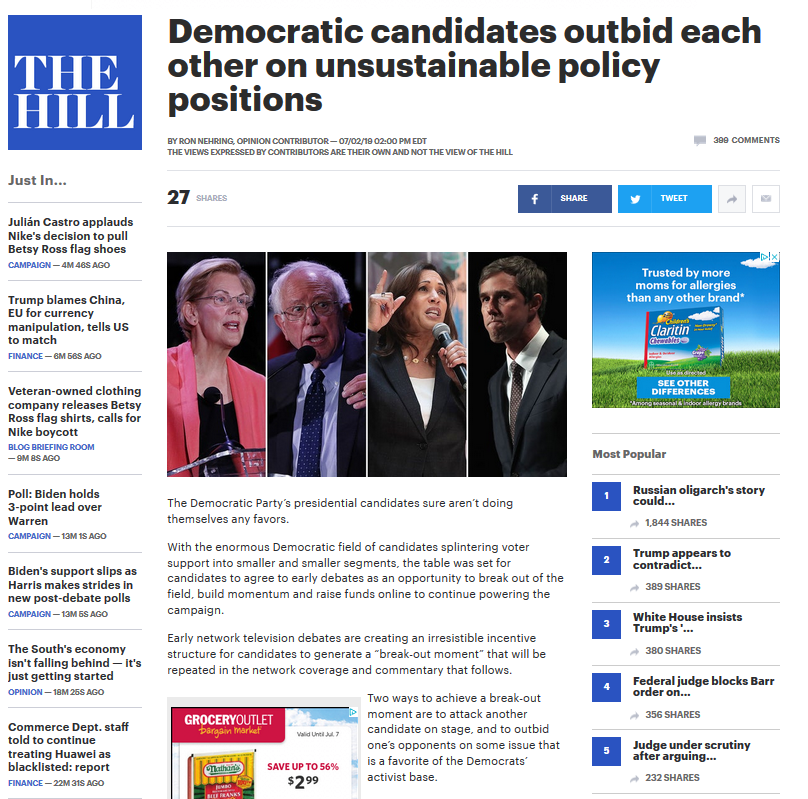If you want to move the mouse, move the cheese.
The crowded Democratic field combined with offers from news networks to host early presidential debates has created an incentive structure that rewards candidates taking early shots at each other while taking increasingly problematic positions on hot button issues that will pose challenges in a general election campaign.
That's the thrust of my story in The Hill this week. To understand why Democratic candidates are taking positions so at odd with voters -- like abolishing private health insurance and having taxpayers foot the bill for every person's healthcare in the United States whether they are here legally or not -- we need to understand the incentives pulling them there.
Even worse, the drive to maximize national poll numbers creates another conflict. To win back the White House, Democrats must take back midwestern states like Wisconsin, Michigan, Ohio and Missouri. Yet, with their national membership weighted heavily toward coastal urban centers, Democratic candidates are incentivized to cozy up to those Democrats, who are on a different page than Midwestern general election voters.
To explore this further, take a look at my piece in The Hill.
The crowded Democratic field combined with offers from news networks to host early presidential debates has created an incentive structure that rewards candidates taking early shots at each other while taking increasingly problematic positions on hot button issues that will pose challenges in a general election campaign.
That's the thrust of my story in The Hill this week. To understand why Democratic candidates are taking positions so at odd with voters -- like abolishing private health insurance and having taxpayers foot the bill for every person's healthcare in the United States whether they are here legally or not -- we need to understand the incentives pulling them there.
Even worse, the drive to maximize national poll numbers creates another conflict. To win back the White House, Democrats must take back midwestern states like Wisconsin, Michigan, Ohio and Missouri. Yet, with their national membership weighted heavily toward coastal urban centers, Democratic candidates are incentivized to cozy up to those Democrats, who are on a different page than Midwestern general election voters.
To explore this further, take a look at my piece in The Hill.


 RSS Feed
RSS Feed